“Your survival has never depended on your knowledge of white culture. In fact, it’s required your ignorance.”
Ijeoma Oluo
What is whiteness? If you are white, what do you think or feel about your whiteness? If someone generalizes about white people, how do you typically react?
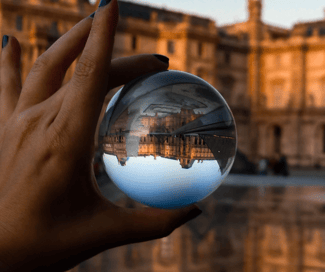 I noticed years ago that my friends of color knew patterns of whiteness better than I did: what it looks like, what it sounds like, how to interact with it and how to survive in spite of it. Particularly enlightening are the ways People of Color have taught about how whiteness uses power, interacts in-group and out-group (with People of Color), and how whitness dictates how we react when we don't know something. Most illuminating has been my increased learning about the ways we aren’t fluent in or cognizant of whiteness. The patterns of whiteness are predictable and known to People of Color.
I noticed years ago that my friends of color knew patterns of whiteness better than I did: what it looks like, what it sounds like, how to interact with it and how to survive in spite of it. Particularly enlightening are the ways People of Color have taught about how whiteness uses power, interacts in-group and out-group (with People of Color), and how whitness dictates how we react when we don't know something. Most illuminating has been my increased learning about the ways we aren’t fluent in or cognizant of whiteness. The patterns of whiteness are predictable and known to People of Color.
How can this be, that People of Color know white folks better than we know ourselves?
White supremacy and white people are different, per john a. powell’s piece titled “Let’s not conflate white supremacy with white people.” He says:
“...we have to be clear about what white supremacy is and what it is not. Crucially, calling out white supremacy is not a dig against white people. There will be those who insist that to use the term is to attack all white people. They are wrong.
White supremacy is an ideology, a way of viewing the world. And while this ideology may be embraced by many people who are white, there is strong evidence to suggest that most do not. To challenge white supremacy is the right thing to do. All ideas that say one race or ethnic group is superior to another must be challenged.”
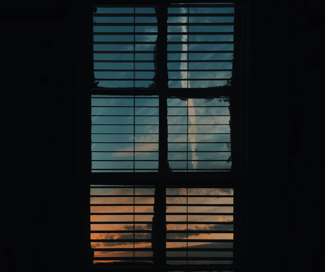 I hope it is clear by now that no, I do not hate white people. I hate white supremacy. Truth-telling urges us to clarify that the social construct of whiteness is toxic, harmful, and violent. Understanding whiteness as a social construct is integral to justice work, especially now, with the whitelash against the Critical Race Theory (CRT) boogeyman. Uproar against CRT has shown again that whiteness will wield any power to silence conversation about whiteness, power, racism, and racial oppression.
I hope it is clear by now that no, I do not hate white people. I hate white supremacy. Truth-telling urges us to clarify that the social construct of whiteness is toxic, harmful, and violent. Understanding whiteness as a social construct is integral to justice work, especially now, with the whitelash against the Critical Race Theory (CRT) boogeyman. Uproar against CRT has shown again that whiteness will wield any power to silence conversation about whiteness, power, racism, and racial oppression.
We white folks in the United States are taught that whiteness is the norm, to which everyone else is compared and strives. It's so much the norm that it's ubiquitousness may seem invisible. People of Color are not failed white people. Holding up whiteness as the norm is a primary tool of this dehumanization and blame.
“Until you can recognize that you are living a racialized life and you’re having racialized experiences every moment of every day, you can’t actually engage people of other races around the idea of justice,” Dow explains. “Until you get to the thing that’s primary, you can’t really attack racism.”
Whitney Dow - The Whiteness Project
The United States was designed on Black-white binary that enculturates us into a dystopian horror of Black dehumanization and criminalization. Whiteness did this– and it still does, friends. Anti-Blackness is baked into us, personally, interpersonally, organizationally, and systemically.
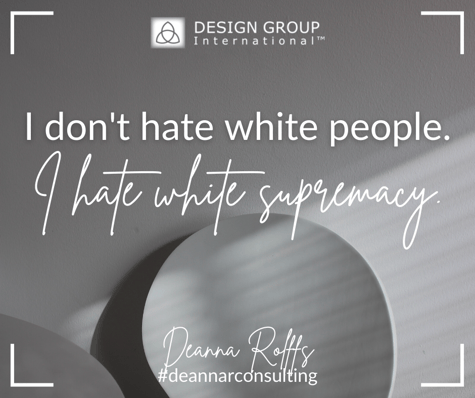
Race is a social construct, without biological basis. Despite any basis, it still has life and death consequences that whiteness perpetuates. White folks are not superior (need I even say that...yes) but the belief of superiority of white people internalized deeply.
Why was the concept of racial hierarchy created?
Why would the pattern of push back across the US be so violent, obvious, and coordinated after some justice is seen?
This pattern is so ingrained that it affects the way we respond to any questioning of the pattern itself. It can be so hard for white people to hear generalizations about whiteness. We white folks are enculturated to believe we are individuals, and that generalizations don’t affect us, that we are one of the good ones, the younger generation is so much better, so when all of the old racists die out we will be in a post-racial society.
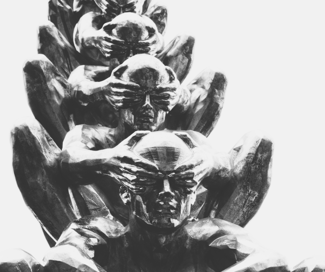 We cannot “good white people” ourselves out of racism. I invite you to instead take a step toward curiosity.
We cannot “good white people” ourselves out of racism. I invite you to instead take a step toward curiosity.
Notice patterns of whiteness. Learn more about the phases of white consciousness (links below); they are incredibly illuminating to me. The process is not linear. Let's stay curious as we continue to better understand whiteness and how it continues to affect People of Color.
With love and truth, toward the goal of liberation, we can build a more racially just world. Understanding and decentering whiteness and white supremacy is integral to working to be anti-racist and fighting anti-Blackness.
Fellow leaders and learners, I wish you courage and resilience for the journey.
Peace to you,

Read the first part of this series here: Let's talk about whiteness - Part 1: Who are you, white person, to work for racial equity?

What I’m Reading & Watching
Regarding This Topic:
- Race: the Power of an Illusion by PBS.org
- White People: I Don’t Want You To Understand Me Better, I Want You To Understand Yourselves
- White Privilege: Unpacking the Invisible Knapsack by Peggy McIntosh
- White Racial Identity and Anti-Racist Education: A Catalyst for Change by Sandra M. Lawrence and Beverly Daniel Tatum
- STAGES OF WHITE RACIAL/ETHNIC IDENTITY DEVELOPMENT by Janet Helms summarized by Beverly Daniel Tatum and Ali Michael

Questions for Consideration
Regarding This Topic:
- Why was the concept of racial hierarchy created? How do you see it evident today?
- What examples of anti-Black, racial backlash do you see in the US, often after movement toward racial justice?
- How do you see your journey reflected in the stages of white identity development?
- How can you take one step to increased understanding of yourself, your relationships, your organization(s), and systems such as health care, housing, etc.?

Upcoming
Leadership & Learning Topics:
- Why is consciousness about my whiteness integral to...everything?
- How can you say white fragility is violent?
- White privilege, are we still debating this?
- How does whiteness apply to patriarchy and misogyny?
- Isn't intersectionality just the presence of difference?
- Reverse racism isn't a thing?
Tags:
Miseducation, diversity, race, anti-white supremacy, anti-racism, white privilege, leadership development, equity, racism, inclusion, whiteness, anti-oppression, definitions
August 11, 2021



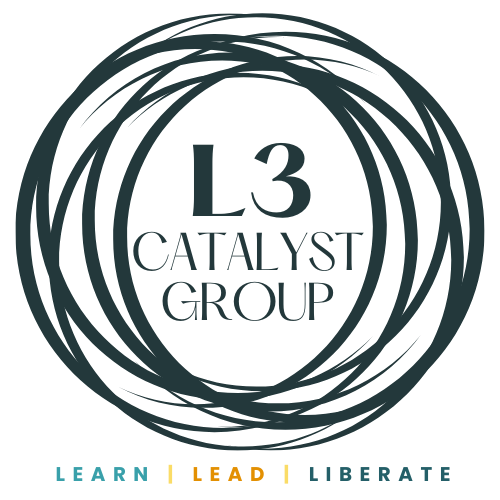
Comments